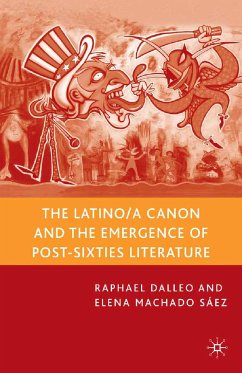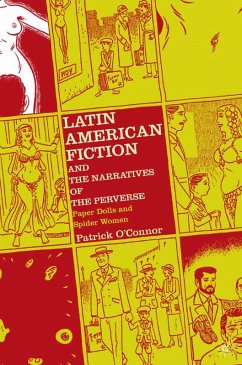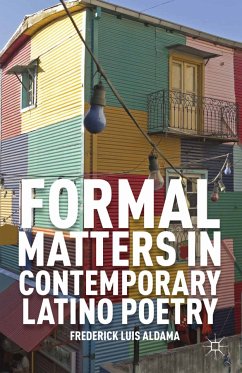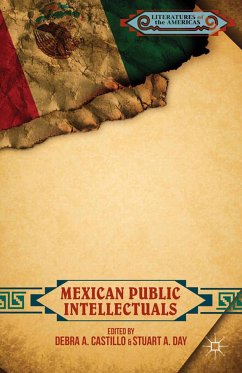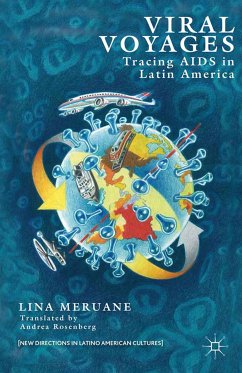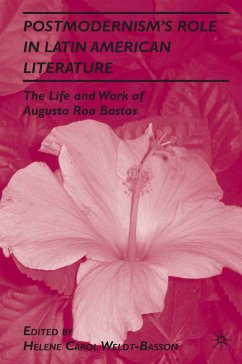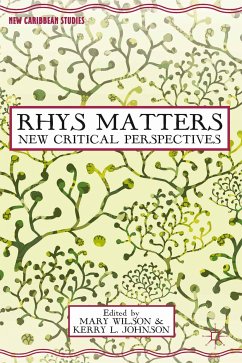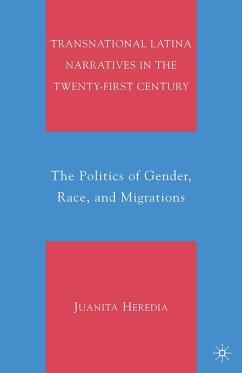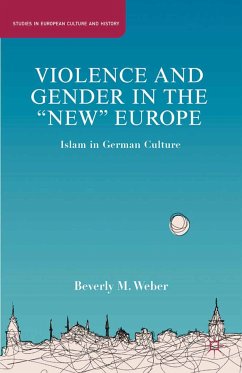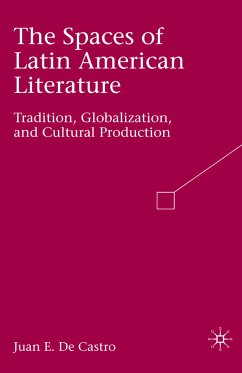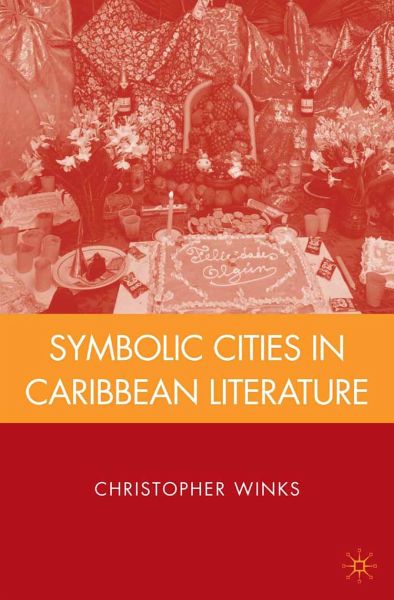
C. Winks
eBook, PDF
Symbolic Cities in Caribbean Literature (eBook, PDF)

PAYBACK Punkte
20 °P sammeln!






Utilizing cross-cultural strands, this comparative study analyzes Caribbean literary representations of magic and invisible cities reworking the notion of the city as both instituted social space and imaginary community.
Dieser Download kann aus rechtlichen Gründen nur mit Rechnungsadresse in A, B, BG, CY, CZ, D, DK, EW, E, FIN, F, GR, HR, H, IRL, I, LT, L, LR, M, NL, PL, P, R, S, SLO, SK ausgeliefert werden.
CHRISTOPHER WINKS is Assistant Professor of Comparative Literature at the Queens College/The City University of New York, USA.
Produktdetails
- Verlag: Palgrave Macmillan US
- Seitenzahl: 194
- Erscheinungstermin: 25. Mai 2009
- Englisch
- ISBN-13: 9780230621572
- Artikelnr.: 46752670
"We have in Winks' Symbolic Cities in Caribbean Literature a remarkable, almost encyclopedic, encounter and literary elucidation of intense and salient aspects of Caribbean culture in all its variety, resulting in a major contribution to Caribbean hermeneutics and thinking." - Kamau Brathwaite, New York University
"Winks symbolic cities are culturally imagined places, myths, where people come, exchange and live together (expansively or oppressively - notable ones being Soninke Wagadu and Euro-American El Dorado) to establish, or try to establish, one reality from many localities . . .Here and in like places such magic cities are figures tying myth to local history and the experience of colonial oppression to the creation of a
"Winks symbolic cities are culturally imagined places, myths, where people come, exchange and live together (expansively or oppressively - notable ones being Soninke Wagadu and Euro-American El Dorado) to establish, or try to establish, one reality from many localities . . .Here and in like places such magic cities are figures tying myth to local history and the experience of colonial oppression to the creation of a
Mehr anzeigen
(potentially) new cultural actuality, ultimately portraying the establishment of a new Caribbean culture and its difficult removal from the impress of colonial hegemony. Symbolic Cities is a superb piece of scholarly research and literary analysis, a major contribution to Caribbean criticism, rooted in Caribbean theoretical understanding, historical sensibility and situation and political commitment, even as it is embedded in wider global considerations." - Timothy J. Reiss, New York University
"If scope and precision, the use of detail to illuminate the whole, are signs of a Renaissance mind, then Winks mind is Renaissance. His Symbolic Citiesin Caribbean Literature deals vastly and simultaneously with the City as Utopia, as an established real space to a living community, and as an imaginary construction where the modern aspiration of conviviality as plurality, social harmony through differences, differences as stimulus for the creation of a more serene and radiant space can come true. Ezra Pound, centering in an old Chinese tradition, told us to Make it New. Winks, in this seminal book, destined to be read for many decades by all serious students of the City, has performed a necessary feat that calls not onlyfor a new perception of his subject matter, but also for the need to Make it Whole. Symbolic Cities in Caribbean Literature is the work of a vast and serene intelligence at the service of a feasible Utopia, a place where human beings can hope to live a better and more perfectible life, so that the imagination can devote itself to the pursuit of knowledge and shared happiness." - José Kozer
"If scope and precision, the use of detail to illuminate the whole, are signs of a Renaissance mind, then Winks mind is Renaissance. His Symbolic Citiesin Caribbean Literature deals vastly and simultaneously with the City as Utopia, as an established real space to a living community, and as an imaginary construction where the modern aspiration of conviviality as plurality, social harmony through differences, differences as stimulus for the creation of a more serene and radiant space can come true. Ezra Pound, centering in an old Chinese tradition, told us to Make it New. Winks, in this seminal book, destined to be read for many decades by all serious students of the City, has performed a necessary feat that calls not onlyfor a new perception of his subject matter, but also for the need to Make it Whole. Symbolic Cities in Caribbean Literature is the work of a vast and serene intelligence at the service of a feasible Utopia, a place where human beings can hope to live a better and more perfectible life, so that the imagination can devote itself to the pursuit of knowledge and shared happiness." - José Kozer
Schließen
Für dieses Produkt wurde noch keine Bewertung abgegeben. Wir würden uns sehr freuen, wenn du die erste Bewertung schreibst!
Eine Bewertung schreiben
Eine Bewertung schreiben
Andere Kunden interessierten sich für


